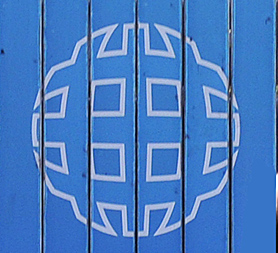Murdoch plans News Corp share buy-back scheme
As News Corporation announces plans to spend $5bn to buy back its shares, Channel 4 News looks at how the past 10 days have highlighted the bizarre corporate structure of the Murdoch Empire.
Boosting News Corp’s waning shares by more than 5 per cent, Rupert Murdoch‘s move is the latest in the company’s bid to fight back against the financial impact of the phone-hacking allegations which forced the closure of the News of the World.
News Corp shares have seen their value slump in New York, after a week of scandals which dealt a body blow to its British newspaper business. And they have fallen so low that the company has taken extreme measures to support its flagging share price.
Before the buy-back plan, News Corporation, a vast media conglomerate that includes the 20th Century Fox movie studio and Harper Collins publishing, had lost more than $4.7bn of its market value.
Meanwhile, according to papers lodged in a Delaware court, amending an existing legal action, an American shareholder group led by Amalgamated Bank says the latest phone-hacking allegations show News Corp is out of control. “These revelations show a culture run amok within News Corp, and a board that provides no effective review or oversight,” it said.

The shareholder group is suing News Corp over its decision to buy Shine Productions for $675m. They contend the purchase had no legitimate strategic or business purpose, but that Rupert Murdoch agreed to it out of “blatant nepotism” to give his daughter a seat on News Corp’s board.
News Corp has described the claims relating to Shine as meritless.
Phone-hacking scandal, the American view
Bizarre corporate structure
The developments of the past 10 days highlight the bizarre corporate structure and governance structure of the company. It is often described as Mr Murdoch’s company, but in reality the Murdoch family trusts only own around 12 per cent of News Corp shares.
They are able to exercise control over the company because of its unusual corporate structure. Only 30 per cent of the company’s shares have voting rights, and 40 per cent of those voting shares are in Murdoch hands.
This has allowed the company to pursue a series of deals which a more orthodox board of directors would baulk at.
In reality the Murdoch family trusts only own around 12 per cent of News Corp shares.
The $5.6bn acquisition of Dow Jones in 2007 allowed Mr Murdoch to get his hands on one of the most venerable names in journalism history – but precious little cash flow. And two years later he had to admit that he had vastly overpaid, writing down the value of the asset by $2.8bn.
Compared to that, the $535m lost on the sale of MySpace earlier this year seems modest.
But the News of the World scandal has delayed the plan to complete the takeover of the fantastically lucrative BSkyB – which generated £855m in operating profit last year. That was a serious hit to the shareholder value of News Corp.
Q&A: News of the World phone-hacking scandal
Newspaper commitment
Perhaps the biggest cost of all, though, is Mr Murdoch’s continued commitment to the newspaper business. Many papers, notably the New York Post, lose millions of pounds every year, and the Murdoch strategy of charging for news content on the internet has yet to pay off.
As a result, News Corp’s share price has languished this year, while those of its media rivals CBS and Viacom have soared.
Amalgamated Bank of New York and the Central Laborers Pension Fund, the plaintiffs in the nepotism case, are the first shareholders to speak out openly against the Murdoch regime at News Corp.
But if the tide of scandal does not abate soon, how long with the other holders of 88 per cent of News Corp continue to keep their own counsel?